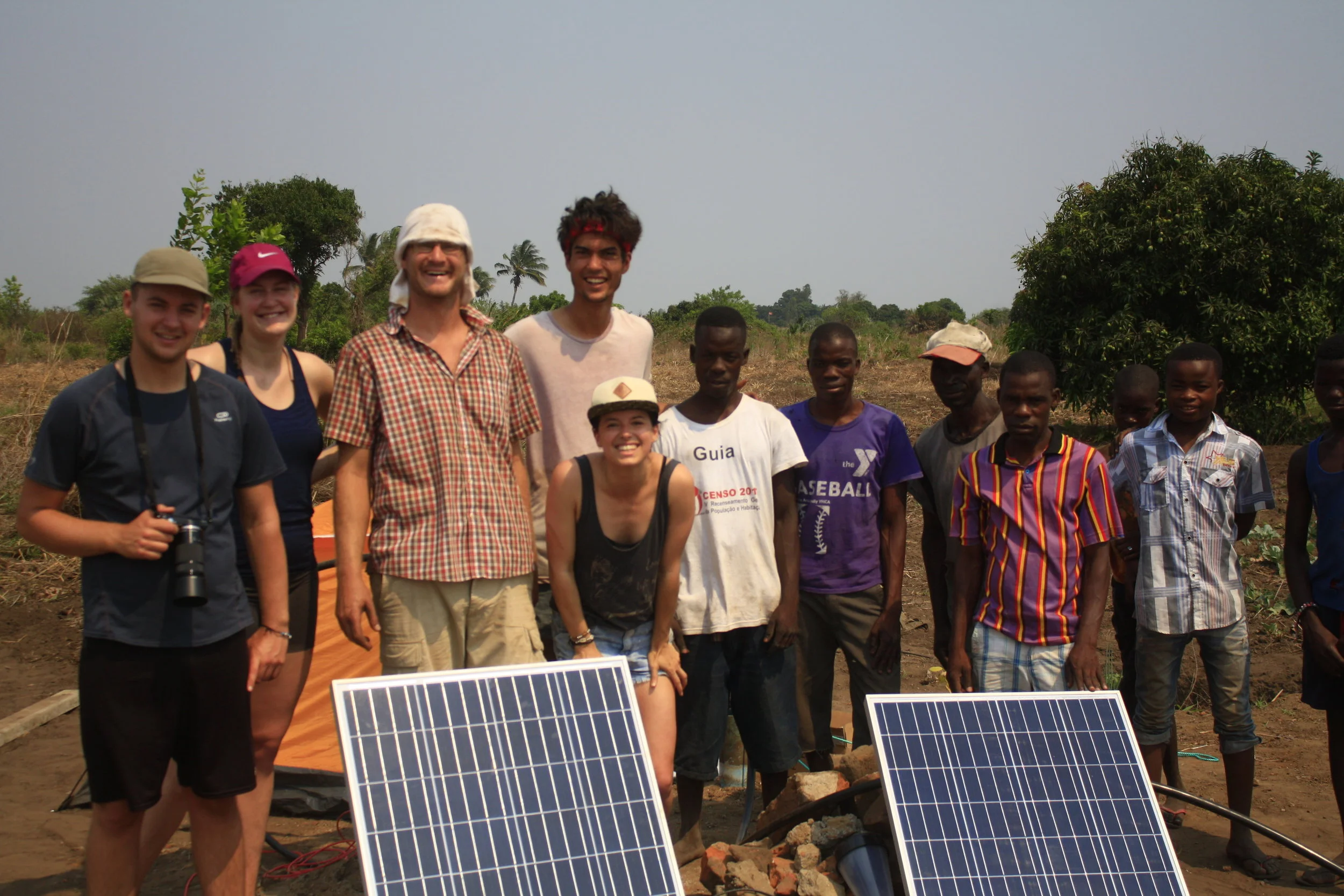Our Work
The heart of LDCN’s work is our community development work in Nguineia, Mozambique. Our project, Projecto Tiri Pabodsi (“We Are One and Together Project” in the local language), is rooted in embodying and demonstrating sustainable, evidence based solutions to local challenges and then fostering opportunities and resources to expand and spread access to those solutions within the broader community. To this end, LDCN’s work is centered at demonstrating and implementing potential solutions at both the local primary school as well as LDCN’s community innovation center. Specifically, these solutions are aimed at improving and enhancing Access to Energy, Access to Water and Nutritional Security. To date, LDCN has manually drilled multiple boreholes in the community, piloted a solar panel pump system to both pump water and provide access to solar energy and finally developed a 1000 sqm. irrigated vegetable garden. While addressing these short term and more immediate needs, LDCN’s longer term goal is to enhance Education and Skills Building, foster meaningful Livelihood Development and finally work to improve Health and Hygiene.
LDCN COMMUNITY INNOVATION CENTER
Development and change is a dynamic process of discovering an idea, designing a solution, implementing and testing that solution, identifying shortcomings and challenges and finally refining and improving the solution. This innovation process does not take place in a vacuum but rather in the real world where relationships, power dynamics and human nature add even greater complexity to the development process. As such, LDCN believes it is important for this development process to take place together on the ground and with community members in a collaborative and mutual learning process. To this end, LDCN has developed a community innovation center where we can pilot, test and demonstrate meaningful ideas and innovations and subsequently reflect, refine and improve on them to address real world needs and challenges. The local primary school is an extension of the community innovation center and is where we seek to involve and include youth in the development process.
In building this dynamic and interactive space at our community innovation center and primary school, LDCN has fostered an innovative demonstration garden that builds on our three main project focus areas: Access to Water, Access to Energy and Nutritional Security. More specifically we have sough to work at the nexus of these three focus areas and have built a 1000 sqm vegetable garden that is irrigated from a solar panel pump system connected to manually drilled borehole. We are currently in the process of collecting data and measuring the diversity of socio-ecological outputs from this demonstration site in order to quantify the potential of the garden in economic, social and ecological terms. The idea is that this data will help to inform our expansion plan and help us to design next steps together with community members.
Access to water
The cost of an industrial drilled borehole in rural Mozambique is well over $10,000. Using a locally relevant manual borehole drilling process, LDCN can drill and case a 20 meter borehole in the local community for less than $1,000. To date we have drilled 5 boreholes in the community that provide important access points to clean water especially during the rainy season (November - April). We are currently seeking out funding to enhance our training and buy improved equipment in order to further expand local access to this drilling technique and thus greater access to clean water. (See below for a video on Manual Borehole Drilling)
Access to energy
Access to energy has positive links to improving quality of life as well as enhancing poverty alleviation and health outcomes. LDCN is currently installing solar panel pump systems on our manually drilled boreholes in order to both pump water as well as provide access to basic home level energy access and charging stations. In addition to this project, LDCN is also exploring other relevant energy solutions such as firewood saving stoves. Our immediate goal is to install a solar panel system at the local primary school to both pump water but also to provide energy to the school building.
nutritional security
Improved nutrition, especially in the first 1000 days of life, can have significant positive health impacts and furthermore enhance well being. Building off local agricultural knowledge, LDCN has built a 1000 square meter demonstration garden that is irrigated using our solar panel pump system. This garden was developed using agroecological practices and early indications are that production levels may be sufficient to simultaneously improve family level nutrition as well as contribute to a meaningful livelihood. LDCN is currently working to collect data, quantify production levels and develop a community level agroecology training and extension program.




